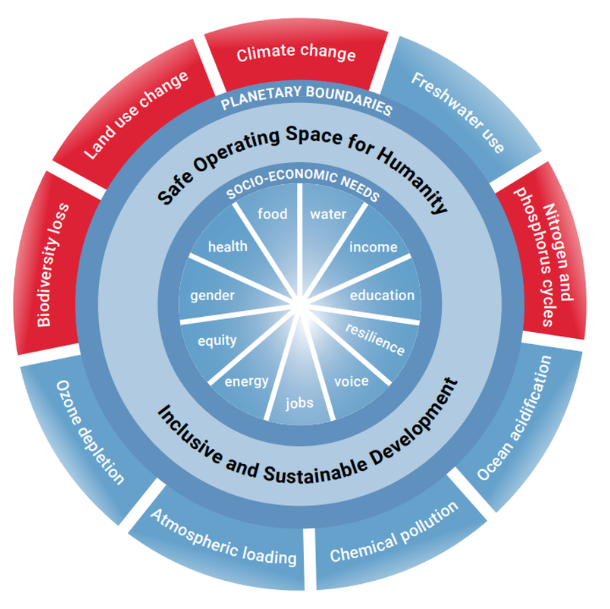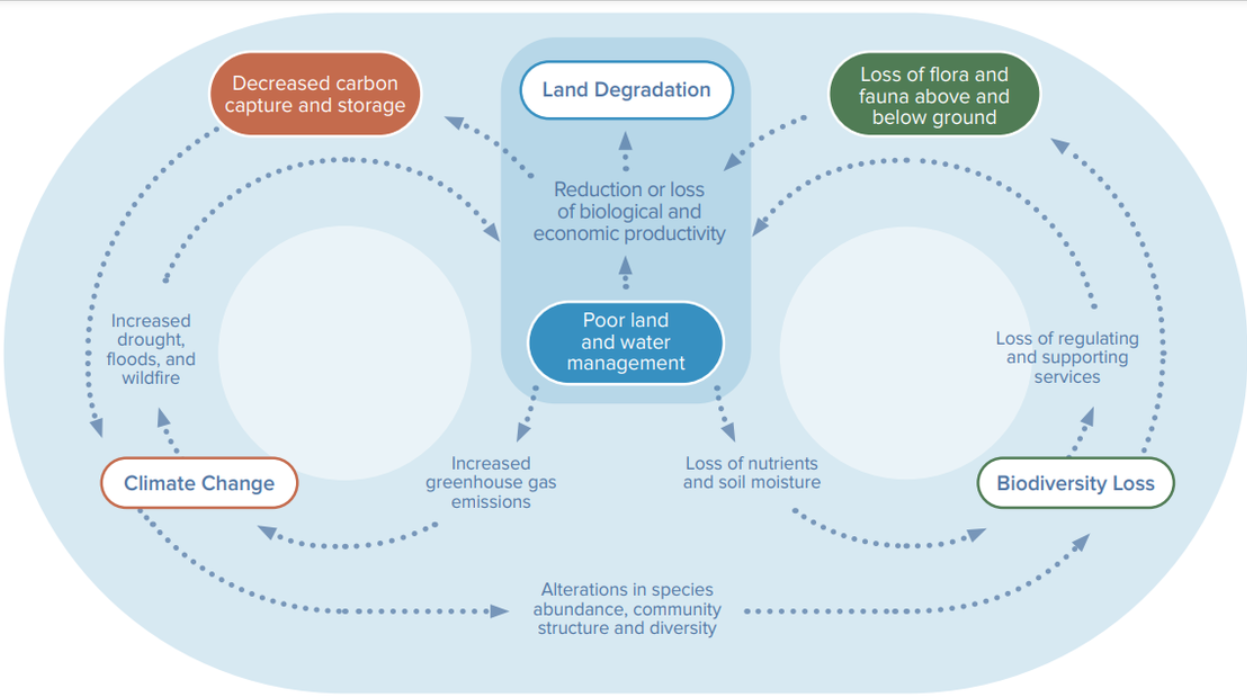900 319 0030
enquiry@shankarias.in
The United Nations Convention to Combat Desertification (UNCCD) has released the Global Land Outlook report highlighting the depletion of finite land resources and the need to urgently restore the world’s land.
UNCCD defines ‘land degradation neutrality’ as “a state whereby the amount and quality of land resources necessary to support ecosystem functions and services and enhance food security remain stable or increase within specified temporal and spatial scales and ecosystems”.


|
Planetary Boundaries |
||
|
||
|
United Nations Convention to Combat Desertification (UNCCD) |
||
|